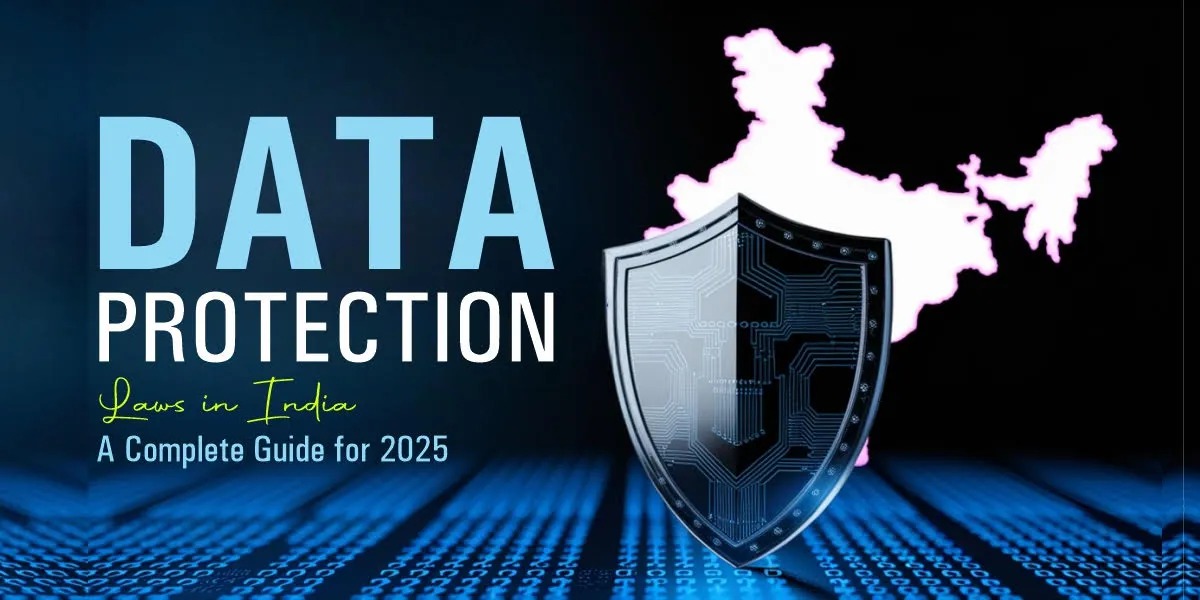
India’s New Data Laws to Unlock ₹10,000 Crore Compliance Market: Future of Digital Governance
Companies Increase Spending on Privacy and Security as Regulations Tighten
Legal Practices, Technology Firms, and Startups Prepare for a Data-Driven Future
By Our Legal Reporter
New Delhi: November 17, 2025:
India is entering a new era of data governance. With the rollout of the Digital Personal Data Protection Act (DPDPA) 2023 and related frameworks, businesses are preparing for stricter compliance requirements. According to industry estimates, the new data law regime could unlock a ₹10,000 crore market in compliance, legal services, and technology solutions.
Also Read: India’s e-Jagriti Portal Brings Consumer Justice Online: 2.75 Lakh Users in First Year
This transformation is not just about regulation—it is about reshaping how companies handle consumer trust, privacy, and digital innovation.
The Rise of Data Law in India
For years, India lacked a comprehensive data protection framework. Companies operated under fragmented rules, often leaving consumers vulnerable to misuse of personal information.
The DPDPA 2023 changed that. It introduced clear obligations for companies, including:
Also Read: ITAT Rules Mere Ownership of Agricultural Land Not Enough to Claim Farm Income
- Consent-based data collection
- Right to correction and erasure for individuals
- Data breach reporting requirements
- Heavy penalties for non-compliance
This law aligns India with global standards such as the EU’s GDPR, while tailoring rules to local needs.
Compliance Spending on the Rise
Also Read: Supreme Court Declares Remand Illegal Without Written Grounds of Arrest
Industry experts estimate that compliance spending will grow rapidly as firms adapt to new obligations. Large corporations, banks, and tech firms are already investing in:
- Data mapping and audits
- Privacy management software
- Legal advisory services
- Training for employees
Startups and mid-sized firms are also expected to allocate significant budgets to compliance, creating a booming market for law firms, consultants, and technology providers.
Opportunities for Legal Practices
The future of data law practices in India looks promising. Law firms are expanding their teams to specialize in:
Also Read: Delhi High Court Examines BCI Rules on Foreign Law Firms as IndusLaw Joins Legal Challenge
- Data protection advisory
- Cross-border data transfer compliance
- Litigation related to privacy breaches
- Corporate governance and risk management
With increasing demand, data law could become one of the fastest-growing legal practice areas in India over the next decade.
Technology Firms Step In
Beyond legal services, technology companies are developing tools to help businesses comply with regulations. These include:
- Automated consent management systems
- Data encryption and anonymization solutions
- AI-driven compliance monitoring
- Cloud-based privacy dashboards
This has created a new ecosystem where law and technology intersect, offering integrated solutions for businesses.
Impact on Consumers
For ordinary citizens, the new laws mean:
- Greater control over personal data
- Transparency in how companies use information
- Stronger safeguards against misuse
- Legal remedies in case of violations
Consumers are expected to become more aware of their rights, leading to higher accountability for businesses.
Challenges Ahead
Despite progress, challenges remain:
- Awareness gap: Many small businesses are still unaware of compliance requirements.
- Cost burden: Compliance spending may be heavy for startups.
- Implementation hurdles: Ensuring uniform enforcement across industries will be difficult.
- Skill shortage: India needs more trained professionals in privacy law and compliance technology.
Experts suggest that government support and industry collaboration will be key to overcoming these hurdles.
Also Read: Indian Courts Turn to Experts for Complex Financial Cases: Strengthening Justice in Economic Matters
Global Context
India’s move mirrors global trends. Countries across Asia, Africa, and Latin America are introducing data protection laws to regulate digital economies.
By adopting strong frameworks, India positions itself as a trusted global partner in technology and outsourcing. This could boost foreign investment, especially in IT and fintech sectors.
Future Outlook
Looking ahead, the future of data law practices in India will be shaped by:
- Expansion of compliance markets: Legal and tech firms will see rising demand.
- Integration with AI regulations: As artificial intelligence grows, data laws will expand to cover algorithmic transparency.
- Cross-border cooperation: India may negotiate data transfer agreements with other countries.
- Consumer empowerment: Citizens will increasingly exercise their rights, leading to more litigation and accountability.
By 2030, experts predict that data law will be a core pillar of corporate governance, much like taxation and labour law today.
Conclusion
Also Read: Supreme Court Rules Habeas Corpus Cannot Release Accused After Bail Pleas Are Dismissed
India’s new data laws are more than just regulations—they represent a cultural shift towards digital responsibility. With a ₹10,000 crore compliance market emerging, businesses, law firms, and technology providers are gearing up for a future where privacy and trust are central to growth.
For consumers, the laws promise greater protection and transparency. For companies, they signal a new era of accountability. And for India, they mark a step towards becoming a global leader in digital governance.
🔑 Keywords for Faster Searches
Also Read: India vs USA: Key Legal and Regulatory Challenges for Global Businesses
- India data law 2023
- Digital Personal Data Protection Act India
- Future of data law practices India
- ₹10,000 crore compliance market
- Data privacy regulations India
- GDPR vs India data law
- Corporate compliance spending India
- Law firms data protection India
- Technology solutions for data compliance
- Consumer rights data privacy India